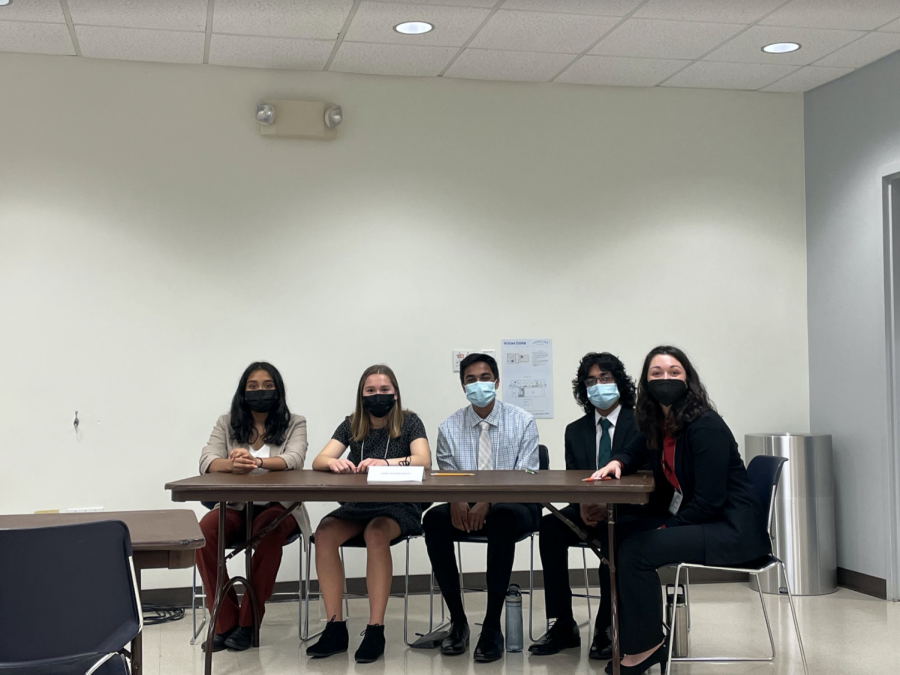Tipping at restaurants, consuming animal products, the suffering of wild animals— ethical dilemmas are everywhere.
However, not everyone is equipped with the knowledge to dissect these issues head-on. Because what is deemed right and wrong is widely subjective, public institutions have long shied away from addressing the subject of ethics in schools. Many high school students have no knowledge of what ethics even are—much less how to apply them to timely, real-world situations.
But PV’s Ethics Bowl team is changing the course of this outdated practice.
Through their participation in the National High School Ethics Bowl, the PV Ethics Bowl team has demonstrated the importance of high school students studying ethics. Applying ethics to politics, business, international affairs, popular culture and their personal lives, PV students have learned to implement ethics in all walks of life.
The 2021-2022 PV Ethics Bowl team set the bar impressively high in its first year of existence. Last year, the team competed at the National High School Ethics Bowl competition held at UNC at Chapel Hill.
However, the team’s success could not have been possible without the guidance of an adviser whose expertise in philosophy and ethical frameworks led the team to victory: Dr. Lynne Lundberg, known to her students as Dr. L.
Dr. L founded PV’s Ethics Bowl team with a mission to teach young adults how to ground their ideas with ethics so that they may have more productive discussions. “Ethics bowl encourages discussion rather than competition and I think that’s important in the world we live in, which is contentious, but doesn’t necessarily have to be,” she shared.
Ethics Bowl is more than an extracurricular—it teaches high schoolers to find nuance in real-world scenarios. From cases that question the ethics of ghosting to predictive policing tactics, teams learn to analyze issues using philosophical frameworks—such as Kantian deontology, Aristotle’s Virtue Ethics, and Utilitarianism—to support their dialogue.
The structure of the competition is rooted in collaboration. As described by the official National High School Ethics Bowl committee, “In each round of competition, teams take turns analyzing cases about complex ethical dilemmas and responding to questions and comments from the other team and from a panel of judges.”
However, teams are not expected to reach a definitive conclusion. Ethics Bowl recognizes “gray areas” and encourages teams to think through ethical issues together. Unlike speech and debate, participants are not expected to oppose the other team’s viewpoint. Rather, teams are encouraged to defend their position using philosophical frameworks and respectfully provide criticism on the other team’s argument, even if they are primarily in agreement.
A team wins a round by demonstrating to a panel of judges that they have systematically dissected a case and engaged in respectful dialogue. The nature of competition rewards teams that demonstrate a depth of thinking and respect shown to their peers’ diverse perspectives, rather than the team with superior argumentative skills.
Senior Nirmal Alla is a member of the PV Ethics Bowl team. “The competition itself promotes agreement of the majority rather than argument, and when you pair this with the voting system in place to determine winners, you have a competition that promotes the values of the majority, as seen in a democratic society,” he said.
By fostering values such as ethical awareness, civil discourse, civic engagement and an appreciation for other viewpoints, Ethics Bowl is teaching the next generation democratic values that have the power to change the world.










Jessica Parker • Oct 11, 2022 at 10:33 am
I think ethics bowl is very important and I love the ideas of teaching students at PV about critical thinking and ethics behind certain things.